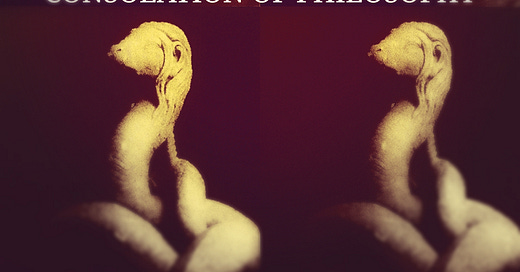“by the time his beard had come, the Tyanean (his mentor and partner in charlatanry) was dead, and he found himself in straits; for the personal attractions which might once have been a resource were diminished. He now formed great designs, which he imparted to a Byzantine chronicler of the strolling, competitive order, a man of still worse character than himself, called, I believe, Cocconas. The pair went about living on occult pretensions, shearing ‘fat heads’ as they describe ordinary people in the native Magian lingo”
Thus does Lucian of Samosata give an account of the genesis of the career of Alexander of Abonutichus, the failed philosopher who turned to fraud and pretended prophet-hood to slake his ego’s thirst and line his pockets. He began, Lucian tells us, with all the blessings of nature – good looks, intelligence, and an extremely persuasive personality. He ended up a ventriloquist, his arm up the backside of a stuffed python pretending to be a god and issuing garbled mumbo jumbo to exploit the poor folk of Pontus (Roman province in North Turkey).
Thus is ‘philosophy’ brought into disgrace. Today, Alexander would probably have a talk-radio show or something (no doubt he'd have a significant twitter following). Contradictions between people, even or especially between philosophers are not unnatural, not signs of weakness. But when philosophers begin to contradict themselves and be pulled this way and that, slithering about according to trends and popular whims- regardless of whether the latter are misguided, dumb, vicious etc- that is (or should be) a cause for concerned reflection.
A consolation of philosophy is that it should transcend (at least in level of awareness) the scalding stew of naive and unreflected living. It need not be all grand concepts and eye-splitting terminology (in fact, I react with immediate suspicion to any lofty sounding rhetoric - or pretended vulgarity -and certainly to symbol mongering). But it should at the very least spark moments where a distance can be held from the tornadic vortex of living and dying and some flickers of the starry skies beyond can slip through.
One of my favourite philosophers is Henri Bergson. In a passage from “Creative Evolution”, he sums up in suitably atmospheric language just what I take as the consolation of philosophy.
“From this ocean of life, in which we are immersed, we are continually drawing something, and we feel that our being, or a least the intellect that guides it, has been formed therein by a kind of local concentration. Philosophy can only be an effort to dissolve again into that Whole. Intelligence, reabsorbed into it’s principle, may thus live back again its own genesis”
If one is promulgating a philosophy, built on the recognition of common human worth and potential, and yet one feels the need to wrap it in adopted poses (think of the popularity of contrarianism today in our post-reality TV media environment) or plastic, quasi-traditional sounding rhetoric to appeal to the irrational sentiments of or simply to dazzle the public, then whatever your gauge for success may be, you have by your method contradicted your own position and have done disservice to philosophy and humanity. If nothing else, let our universal maxim be “try to help, but failing that, try to do no harm”.




A philosophy can be outgrown, if it was of a poor fit to begin with. We must have the courage to be ready for this, without allowing the process of finding a better fit to turn us into a mockery of the quest.